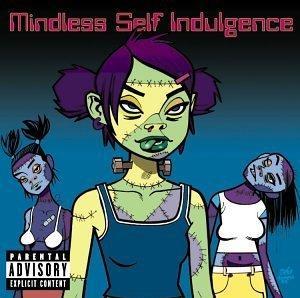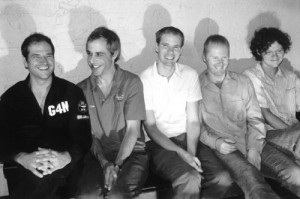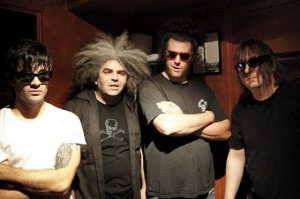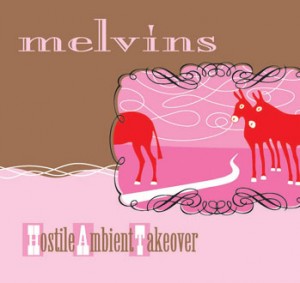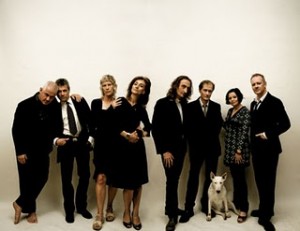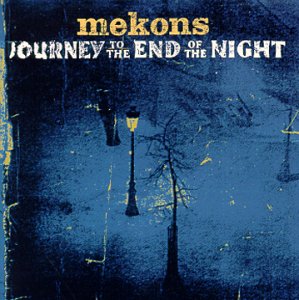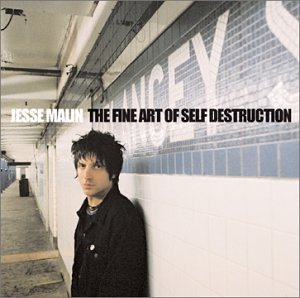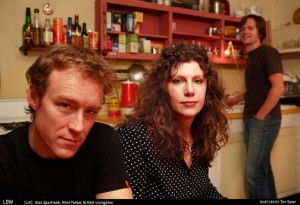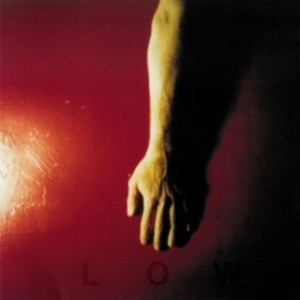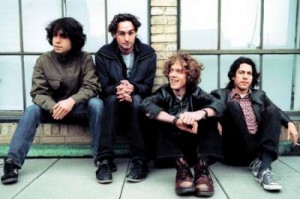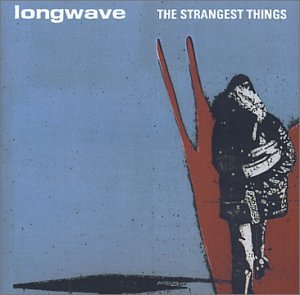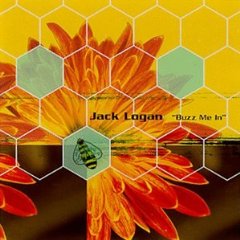
FOREWORD: I became friendly with Luna head, Dean Wareham, in ’99, interviewing him backstage at Irving Plaza prior to a persuasive set. I had spoken to the New York City transplant informally a few times in the past and gotten a few quotes from him for a Cover Magazine piece supporting ‘95s remarkable Penthouse.
Though 99s The Days Of Our Nights didn’t top Penthouse, its delicate slow-core features inspired ‘02s fine Romantica and ‘04s less worthy Rendezvous. In ’07, Wareham married Luna paramour, Britta Phillips (who’d joined the band in ’01). Though Luna broke up in ’04, Dean & Britta worked on film scores and completed soothing duo LP, Back Numbers, by ’07. This article originally appeared in Aquarian Weekly.
Ever since he guided dream-pop luminaries, Galaxie 500, to respectable underground status in the ‘80s, New York-via-New Zealand singer/ guitarist Dean Wareham has composed dramatic, psychedelia-induced dreamscapes. When he formed Luna, Wareham’s reflective imagery gained compelling introspect and lush textural grandeur, best demonstrated on ‘95s Penthouse (featuring guest guitarist Tom Verlaine and Stereolab vocalist Laetitia Sadier).
With The Days Of Our Nights’ balmy lucidity, Luna have perfected laconic late night chill music, unleashing a continuous stream of understated songs that flicker, then fade, into the abyss. “Dear Diary’s” shady surrealistic intrigue flows delicately into “Hello Little One” (which resembles Velvet Underground even more than the desolate Guns ‘N’ Roses cover of “Sweet Child Of Mine”). Soft-core delectables like the transient guitar-saturated bossa nova “U.S. Out Of My Pants!” and the billowy sedative “The Old Fashioned Way” recall the gently romantic excursions Arto Lindsay penned for Lust.
Along with Luna pals Sean Eden (guitar), ex-Chills member Justin Harwood (bass), and Lee Wall (drums), Wareham hangs out backstage at Irving Plaza while Atlanta’s Macha open up the evening. As I grab a Bass Ale from an icy crate, Wareham discusses Luna’s latest endeavor, The Days Of Our Nights, and shares thoughts about his influences and past recordings. Afterwards, Luna hit the stage and grabbed the attention of a highly supportive soldout crowd.
Trace Luna’s development since the ‘92 debut, Lunapark.
 DEAN WAREHAM: We’re different now, but at no point did we make radical changes. We didn’t make a techno or dance record. For the first record, we weren’t even a band. We’d only played together a little while. We hit our stride with our third record, Penthouse. The next, Pup Tent, was a bit paranoid lyrically. It’s darker than the new one and was made under confusing conditions. I was taking too many sleeping pills because we were working until 4 in the morning. I was so wired. With a new drummer now, we’re a bit groovier.
DEAN WAREHAM: We’re different now, but at no point did we make radical changes. We didn’t make a techno or dance record. For the first record, we weren’t even a band. We’d only played together a little while. We hit our stride with our third record, Penthouse. The next, Pup Tent, was a bit paranoid lyrically. It’s darker than the new one and was made under confusing conditions. I was taking too many sleeping pills because we were working until 4 in the morning. I was so wired. With a new drummer now, we’re a bit groovier.
How’d you initially get excited about music?
My older brother had Stooges, Lou Reed, and David Bowie records. When I came to New York in ‘77, I got into punk bands like Elvis Costello & the Attractions, the Clash, Talking Heads, Television, the Ramones. I loved some of the records my parents played. I like The Bee Gees Greatest Hits Volume 1, Sam Cooke, the Beatles. There’s a great record by Nina Simone, Here Comes the Sun, which purists don’t like because it wasn’t jazz or blues, but instead Dylan and Beatles pop songs. It’s hard to find.
Many of your songs seem Velvet Underground influenced.
I guess so. I don’t hear that as much as other people. Velvet Underground were noisy and dissonant while we’re mellower and poppier.
The Days Of Our Nights flows semi-thematically as a whole. Was that done consciously?
The way I write lyrics is by going through notes I’ve written for a year. Maybe there’s a theme. Living at night…regret…memories? I don’t know. We were gonna call it The Young And The Restless, but our lawyers said don’t do that. You can’t copyright a title, but you could trademark it. We didn’t want to infringe on the t.v. soap opera.
How would you compare your work in Galaxie 500 to Luna?
I spend more time on lyrics and singing. With Galaxy 500, it was one vocal take on everything. That was the way our producer, Kramer, worked. Next…next…finished. He was in a hurry to get done by 6 P.M. everyday. He had lots of stuff going on, his label and crazy stuff in his life. Galaxy 500 was m
———————————————————————————–
LUNA’S MAJESTIC ‘ROMANTICA’
Seeking relief from today’s hustle ‘n bustle and relationship uncertainties? Then skip transcendental meditation, quick-fix remedies, and self-help books to get comforted by the winsome majesty of Dean Wareham. After leading Velvet Underground-inspired Boston combo Galaxy 500 during the ‘80s, New Zealand-born New York transplant Wareham formed Luna with well respected indie pop denizens Justin Harwood (ex-Chills: bass) and Stanley Demeski (ex-Feelies: drums).
‘92s understated debut, Lunapark, set the tone for the future. Wareham’s coy lyrics and coil-y guitar affects fluttered above distinct rhythms, peaking with the dense post-punk intimacy of “Anesthesia.” Guitarist-keyboardist Sean Eden came aboard for ‘94s Bewitched, expanding Luna’s instrumental prowess and Velvet-y touch for catchy trinkets like the jittery “Heroin”-influenced 6-string jangle “Friendly Advice” and the loving “Pale Blue Eyes”-like affectation “Tiger Lily.”
By ‘95s critically recognized masterpiece, Penthouse, the dependable quartet reached pure nocturnal bliss with heavenly illuminations like the light-hearted “Moon Palace” and the gorgeous “23 Minutes In Brussels” (featuring Tom Verlaine’s eloquent 12-string on the former and his vibrant electric guitar on the latter).
While ‘97s oft-times rewarding Pup Tent couldn’t match its predecessors high regard, the penetrating title track slipped nicely into the subconscious ether. ‘99s slightly better The Days Of Our Nights, highlighted by the soul searching “Hello Little One” and the enthralling remembrance “Four Thousand Days,” lacked the thematic ambiance, gauzy lushness, and post-midnight moodscape of Penthouse.
Nevertheless, new drummer Lee Wall and since-departed bassist Justin Harwood (replaced by former Ben Lee associate/ sweet-voiced harmonizer Britta Phillips) provided subtler rhythmic accentuation better suited for the soft pop translucence ‘02s Romantica (Jetset Records) would achieve. Drifting through dreamy post-psychedelia (the lucid “Black Postcards”) and transient moodscapes (the soothingly addictive “Weird And Woozy” and the chimy “Swedishfish”), this finely detailed gem sets adrift on memory bliss. Although sticking out like a sore thumb, the propulsive “1995″ puts the pedal to the floor between the atmospheric, synth-droned “Mermaid Eyes” and the sentimental tranquility of “Rememories.”
During the three-year break between The Days Of Our Nights and Romanitica, Luna played a significant amount of local venues and recorded the finely detailed Live. A convincing retrospective featuring all the pre-Romantica effluvia listed above, it also contains a French version of Serge Gainsbourg’s lounge-core “Bonnie & Clyde” and a few more winners.
For Romantica, you once again use a new producer. This time, it’s ex-dB’s semi-legend Gene Holder.
DEAN WAREHAM: I was a fan of the dB’s and we shared musical tastes, which is not why we did this. Someone recommended his nice studio (Jolly Roger in Hoboken). It’s not fancy like one’s we’ve worked in at Manhattan. The decks and mikes are just as good – the main ingredients. But he doesn’t have cable t.v. But you work harder if you don’t have basketball on t.v.
What did Gene add?
Someone has to be there to tell you which takes are good. If you play five different guitar solos, someone pieces them together. He had ideas and different production tricks. Even deciding what microphone to use is important.
Since Bewitched, Luna has expanded its textural flow with more instrumentation. Organ, mellotron, vibes, and cello grace various songs.
The guy who mixed this album, Dave Fridmann, did a string arrangement – we can’t afford real strings – on “Black Champagne.” He does the whole arrangement.
The arrangements for each Luna album continue to get a tad more complex. On Romantica, “Love Dust” finds your creamy conversational lyrics enriched by fluid guitar strokes and a nifty “Sugar Shack” keyboard bridge.
There’s a lot of texture to those songs. They’re very layered. This is my favorite album since Penthouse. I liked the second half of Lunapark, but I haven’t listened to it in awhile. You could tell if the record is good if when you get up there to play live it’s easy to do. If it’s a struggle and they don’t lend themselves to playing live, they may not be good. Some people say about Penthouse that the songs all sound the same. That could be a good thing if you get the mood flowing. You could say of the Ramones first album that it all sounds the same.
“Black Postcards” reminded me of Steve Wynn’s paisley post-psychedelia with the Dream Syndicate.
I’ve met him a couple times. Does he still live in New York? Last time I saw him was a few months ago. We were called about potentially being in a Miller beer commercial. I don’t know if we would have done it ‘cause it seemed damn cheesy. We showed up to see what we had to do. I think they were looking for completely unknown bands.
Rolling Rock was gonna use Bob Pollard of Guided By Voices until they saw his live performance, which didn’t fit their image. But Bob told me Rolling Rock gives him the shits, so fuck ‘em.
(laughter) That’s great. Miller ran a campaign in the mid-‘80s with the Del Fuegos when I was living in Boston. I think it did a little harm to their credibility. People thought, “this is ridiculous.” But times have changed.
What’s with the “Swedishfish” reference?
I named the song after one of my favorite candies. It’s gummy. The orange ones are real good. There was a line in the song about Sweden anyway. There’s some glockenspiel on that.
“Black Champagne’s” strings reminded me of Lee Hazelwood’s Western-tinged arrangements. You had interviewed Lee for CMJ when we last spoke.
Only part of that ran for CMJ. The whole piece will be published in BB Gun. It’s a fanzine run by Bob Bert, formerly of Sonic Youth and Knoxville Girls.
How’s your acting career going after making out with Family Tie’s Justin Bateman in Highball?
I did a movie that’s not out yet, Piggies. It’s written and directed by the woman who did Buffalo 66. I play a junkie credit card thief.
You don’t seem the type.
But I know people like that.
-John Fortunato
FOREWORD: Elektra Records saw them coming, but didn’t know what to do with ‘em. Promulgating euphoric intrigue through crazily carefree commotion, shameless shock rockers Mindless Self Indulgence played cardboard and plastic instruments when I saw ‘em at church-like Manhattan venue, Lust, in the spring of 2000. And when I went to interview them post-show backstage, my tape recorder wouldn’t work ‘til I slammed it onto the floor. Oh, and some chicks in fishnet skirts with silver dollar size nips and some guy with a snake-like two-foot dick were hanging out near me upstairs. Such is the life of a busy music scribe. ’05s You’ll Rebel To Anything and ’08′s followed suit for MSI. This article originally appeared in Aquarian Weekly.
